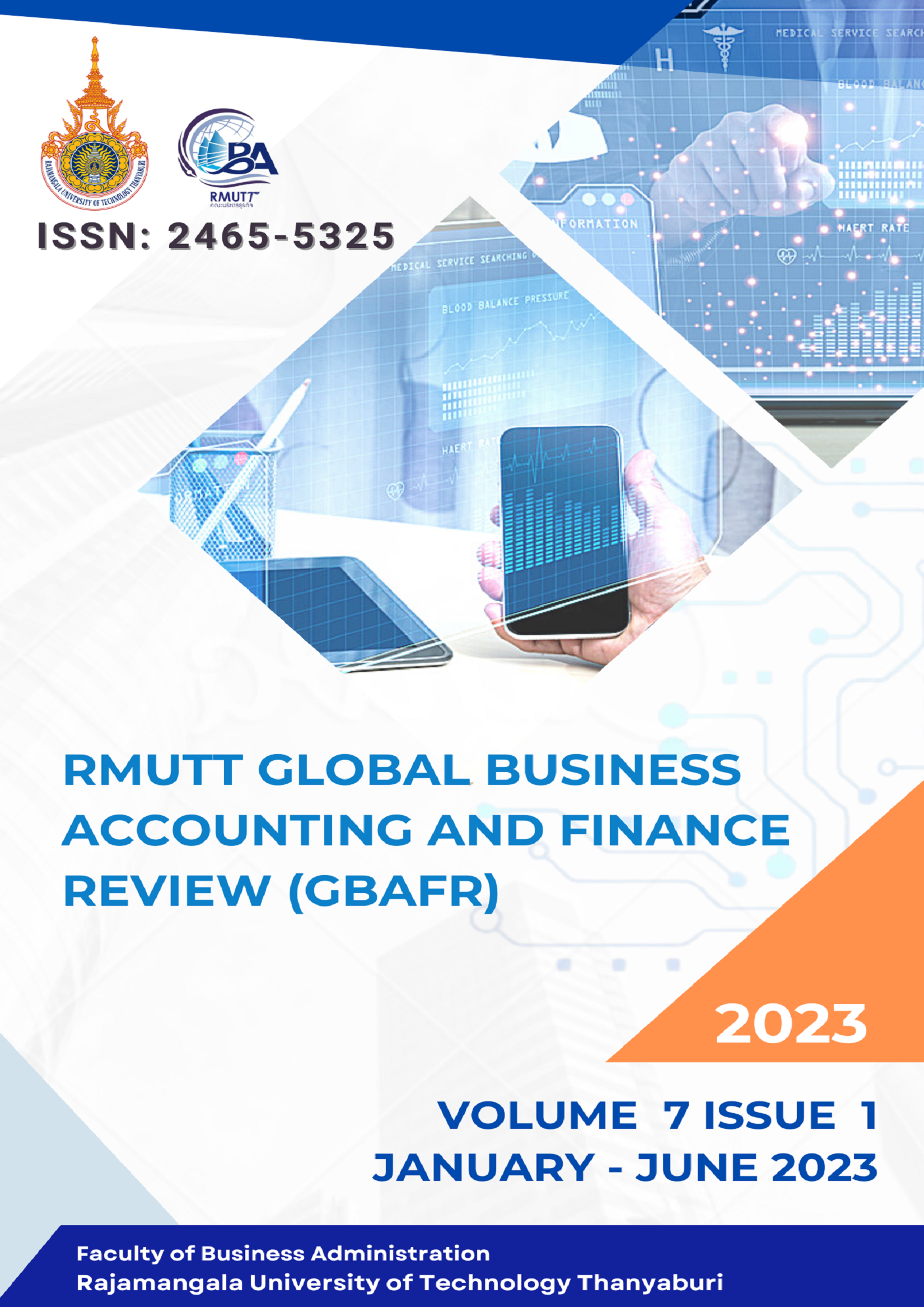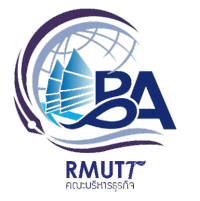EXPLORING SUPERVISOR EXPECTATIONS OF HIGH-POTENTIAL EMPLOYEES: AN INVESTIGATION WITHIN THE CONTEXT OF THAI ORGANIZATIONAL CULTURE IN EASTERN THAILAND
Keywords:
High Potential Employee, Expectation, Supervisor, Grounded Theory, Thai Organizational CulturalAbstract
High potential employees are a valuable asset to any organization as they are viewed as potential future leaders. They possess high levels of skill, knowledge, and motivation and are often identified as a key talent pool for the organization. Therefore, it is crucial for organizations to understand the expectations of these employees towards their supervisors, who play an important role in developing and retaining this group of employees. To address this issue, this article presents a qualitative research study that aims to examine the expectations of high potential employees towards their supervisors. The study employs a grounded theory research strategy with a theoretical sample of high potential employees in private sector organizations. Data were collected through in-depth interviews using an interview guideline. The study collected data from 58 organizations and 63 informants, and data collection continued until data saturation was reached. This study found that high potential employees have five key expectations from their supervisors: clear expectations, opportunities for growth and development, regular feedback, support and guidance, and recognition and rewards. These expectations are crucial for enhancing the retention, job satisfaction, and overall performance of high potential employees in organizations. The findings of this research have broader implications for talent management practices, organizational development, and leadership strategies within private sector organizations. The in-depth exploration of high-potential employees' experiences offers valuable insights for organizations seeking to optimize the potential of their top performers and cultivate a culture of continuous growth and development.
References
Amabile, T. M. (1998). How to kill creativity. Harvard Business Review, 76(5), 76-87.
Armstrong, M., & Taylor, S. (2014). Armstrong's handbook of human resource management practice (13th ed.). United Kingdom: Kogan Page Limited.
Bauer, T. N., Bodner, T., Erdogan, B., Truxillo, D. M., & Tucker, J. S. (2007). Newcomer adjustment during organizational socialization: A meta-analytic review of antecedents, outcomes, and methods. Journal of Applied Psychology, 92(3), 707-721.
Beardwell, J., & Thompson, A. (2014). Human resource management: a contemporary approach. New York: Pearson Education.
Bhaker, S. K. (2020). Relationship between talent management and motivation: a study of two sector of NCR. Journal of Natural Remedies, 21(7), 91-96.
Chaisilwattana, R., & Punnakitikashem, P. (2017). Thai culture and its effects on organizational engagement in Thai privately held companies. UTCC International Journal of Business and Economics, 9(2), 117-136.
Charan, R. (2017). High-potential leader: how to grow fast, take on new responsibilities, and make an impact. New York: Wiley.
Charmaz, K. (2006). Constructing grounded theory: a practical guide through qualitative analysis. London: Sage Publications.
Claussen, J., Grohsjean, T., Luger, J., & Probst, G. (2014). Talent management and career development: what it takes to get promoted. Journal of World Business, 49(2), 236-244.
Collings, D. G., Mellahi, K., & Cascio, W. F. (2018). Global talent management and performance in multinational enterprises: a multilevel perspective. Journal of Management, 45(2), 540-566.
Creswell, J. W., & Poth, C. N. (2018). Qualitative inquiry and research design: choosing among five approaches. London: Sage publications.
Dessler, G. (2022). Human resource management (16th Ed.). New York: Pearson Education.
Dowling, P. J., Festing, M., & Engle, A. D. (2020). International human resource management. Boston, MA: Cengage Learning.
Dries, N., Marescaux, E., & Zelderen, A. (2021). Talent management in practice. London: Routledge.
Gelfand, M. J., Erez, M., & Aycan, Z. (2007). Cross-cultural organizational behavior. Annual Review of Psychology, 58, 479-514.
Glaser, B. G., & Strauss, A. L. (1967). The discovery of grounded theory: strategies for qualitative research. Unuted States of America: Aldine Transaction.
Glaser, G. B., & Holton, J. (2004). Remodeling grounded theory. Forum Qualitative Sozialforschung Forum: Qualitative Social Research, 5(2), Art. 4.
Gooty, J., Gavin, M. B., Johnson, P. D., Frazier, M. L., & Snow, D. B. (2009). In the eyes of the beholder: transformational leadership, positive psychological capital, and performance. Journal of Leadership & Organizational Studies, 15(4), 353-367.
Hofstede, G., Hofstede, G. J., & Minkov, M. (2010). Cultures and organizations: software of the mind (3rd Ed.). United States: McGraw-Hill.
Jabri, M. (2004). Team feedback based on dialogue: Implications for change management. Journal of Management Development, 23(2), 141-151.
Kaliannan, M., Darmalinggam, D., Dorasamy, M., & Abraham. (2023). Inclusive talent development as a key talent management approach: a systematic literature review. Human Resource Management Review, 33, 100926.
Mankins, M. C., & Garton, E. (2017). Time, talent, energy: overcome organizational drag and unleash your team's productive power. United States: Harvard Business Review Press.
Michaels, E., Handfield-Jones, H., & Axelrod, B. (2001). The War for Talent. Boston. United States: Harvard Business School.
Panphae, P., & Phoewhawm, R. (2021). National culture dimension challenges from Thailand, Myanmar, and Laos in developing hotel’s organizational performance. ASEAN Journal of Management & Innovation, 8(2), 95-112.
Patton. M. Q. (2002). Qualitative research and evaluation methods (3rd Ed.). Thousand Oaks, CA: Sage.
Phillips, J. J., & Connell, A. O. (2003). Managing Employee Retention (1st ed.). London: Elsevier, Burlington.
Rebeťák, M., & Farkašová, V. (2015). Managing high-potential employees. Procedia Economics and Finance, 23, 867-871.
Strauss, A., & Corbin, J. (1998). Basic of qualitative research: Techniques and procedures for developing grounded theory (2nd Ed.). California: SAGE.
Walk, M., Schinnenburg, H., & Handy, F. (2013). What do talents want? work expectations in India, China, and Germany. Zeitschrift fur Personalforschung, 27, 251-278.
Downloads
Published
How to Cite
Issue
Section
License
Copyright (c) 2023 Faculty of Business Administration, Rajamangala University of Technology Thanyaburi

This work is licensed under a Creative Commons Attribution-NonCommercial-NoDerivatives 4.0 International License.









